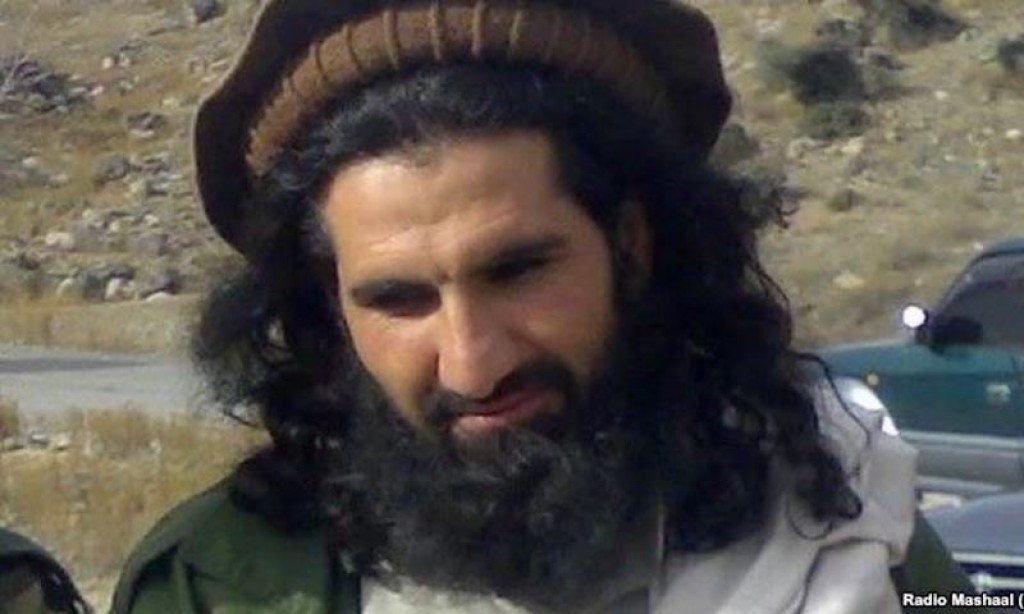
The US is reported to have killed 18 Taliban fighters from Pakistan in an airstrike last night in an eastern Afghanistan area known to serve as a safe haven for several terrorist groups. The Taliban fighters who were killed are believed to belong to a group led by Sajna Mehsud, an al Qaeda-linked commander wanted by the US.
Afghan officials said that the airstrike took place in the Afghan province of Paktika, which borders Pakistan’s Taliban-infested tribal agency of South Waziristan. Xinhua reported the strike took place in the Gomal district, while Dawn claimed it occurred in Bermal. The discrepancy may be due to the fact that the two remote districts border each other, as well as Pakistan. Both districts are known to be jihadist strongholds.
The identities of the Taliban members killed in the airstrike were not disclosed. Taliban sources told Dawn that Sajna Mehsud, who is also known as Khan Said Sajna, “was expected to appear” at a meeting. It is unclear if he was present at the meeting at the time of the airstrike. There are no reports that he has been killed or wounded.
Sajna heads a splinter faction that broke away from the Movement of the Taliban in Pakistan (TTP) in May 2014 due to a leadership dispute. Sajna, who is said to support peace talks and has allied with North Waziristan Taliban commander Hafiz Gul Bahadar, formed the Movement of the Taliban in South Waziristan after breaking away from the TTP after a leadership dispute. At the time of the split, the spokesman for Sajna’s group accused its parent organization of being “un-Islamic.” It is unclear if Sajna has since reconciled with the TTP’s leadership, as some other factions have. [See LWJ report, Discord dissolves Pakistani Taliban coalition.]
The US added Sajna, who is also known as Khan Said and Khalid Mehsud, to the list of specially designated global terrorists in October 2014. His forces are known to wage jihad in both Afghanistan and Pakistan.
Sajna has executed several high profile attacks in the region, including the May 2011 assault on Naval Station Mehran in Karachi that resulted in the destruction of two US-supplied P-3C Orion maritime surveillance planes, and the 2012 prison break in Bannu, which freed Adnan Rasheed, a commander who has a long history with Pakistani terrorist groups as well as al Qaeda.
US intelligence officials who track the TTP and al Qaeda in the Afghanistan-Pakistan region have told The Long War Journal that Sajna remains a close ally of al Qaeda.
“[Sajna] still supports al Qaeda and coordinates activities with the group despite the divisions within the Pakistani Taliban,” an official said in September 2015.
Paktika: Jihadist haven
The presence of Sajna’s forces in eastern Paktika is not surprising, as multiple Taliban factions – including the Haqqani Network and al Qaeda – are known to operate there. Last summer, two senior al Qaeda leaders were killed by the US in airstrikes in Paktika’s Gomal and Bermal districts.
At the end of July 2015, the US killed Abu Khalil al Sudani, a senior al Qaeda leader who took direction from Ayman al Zawahiri, in an airstrike in Paktika’s Bermal district. Sudani had a hand in al Qaeda’s external operations network, which plots attacks against the US and the West. On Sept. 14, Afghan intelligence said that it killed an al Qaeda commander known as as Khuram in the Gomal district.
Additionally, al Qaeda is known to have operated a camp in Bermal as recently as last summer. The raid on the Bermal camp gave the US information on the existence of two other al Qaeda training camps in the Shorabak district in Kandahar province, the outgoing commander of US forces in Afghanistan,General John Campbell, told The Washington Post last year.








2 Comments
This is the second time that Sajna has been reported killed, a fate shared by nearly every droned Taliban before him…most of them killed multiple times.
Pakistani Taliban Commander Reported Killed in Drone Strike in Afghanistan
http://www.nytimes.com/2015/11/26/world/asia/afghanistan-pakistan-taliban-sajna.html?_r=0
Good shooting guys! ! Although its pretty much a
“Whack-a-mole” thing where they appear to have a factory that rolls these wackos out by the bakers dozen. Either way, keep shooting , your all doing a great job.